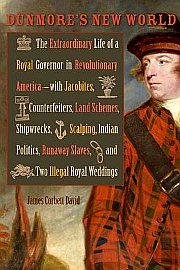 Before I forget / get distracted, my colleagues at British History Online have asked me to bring this opportunity to your attention (http://www.history.ac.uk/news/2014-03-12/academic-advisory-board-member-british-history-online) – have a look, and if you fancy getting involved as an Academic Advisory Board member then either reply to british-history@sas.ac.uk OR feel free to drop me a line.
Before I forget / get distracted, my colleagues at British History Online have asked me to bring this opportunity to your attention (http://www.history.ac.uk/news/2014-03-12/academic-advisory-board-member-british-history-online) – have a look, and if you fancy getting involved as an Academic Advisory Board member then either reply to british-history@sas.ac.uk OR feel free to drop me a line.
On a much more trivial note, I have been invited to take part in the Future of Editing seminar, and will be in Oxford tomorrow at lunchtime talking about Reviews if anyone of you are free and interested. Full details are here (http://bdlssblog.bodleian.ox.ac.uk/), but please don’t look at the poster too closely, except as a warning against taking selfies in the dark…
Ok, finally, back to what you actually signed up for, and this week we’ve got a nice varied crop for you. First up is James Corbett David’s Dunmore’s New World: The Extraordinary Life of a Royal Governor in Revolutionary America, as Stephen Conway reviews a book which seeks to introduce us to a Dunmore who was more than a controversial governor of Virginia (no. 1562, with response here).
 Then Erika Dyck hails a welcome addition to the growing field of literature on the history of eugenics, as she takes on Framing the Moron: the Social Construction of Feeble-Mindedness in the American Eugenic Era by Gerald V. O’Brien (no. 1561, with response here).
Then Erika Dyck hails a welcome addition to the growing field of literature on the history of eugenics, as she takes on Framing the Moron: the Social Construction of Feeble-Mindedness in the American Eugenic Era by Gerald V. O’Brien (no. 1561, with response here).
 Next up is God, Duty and Community in English Economic Life, 1660-1720 by Brodie Waddell. Jennifer Bishop believes that by eloquently challenging older assumptions, and arguing for a more nuanced approach, this book stands as a useful introduction to the vibrancy of economic life in early modern England (no. 1560).
Next up is God, Duty and Community in English Economic Life, 1660-1720 by Brodie Waddell. Jennifer Bishop believes that by eloquently challenging older assumptions, and arguing for a more nuanced approach, this book stands as a useful introduction to the vibrancy of economic life in early modern England (no. 1560).
 Finally we have Leonie Hicks and Elma Brenner’s edited collection Society and Culture in Medieval Rouen, 911-1300 which Benjamin Pohl praises as being a well-structured volume which is both informative and innovative in its approach (no. 1559).
Finally we have Leonie Hicks and Elma Brenner’s edited collection Society and Culture in Medieval Rouen, 911-1300 which Benjamin Pohl praises as being a well-structured volume which is both informative and innovative in its approach (no. 1559).
